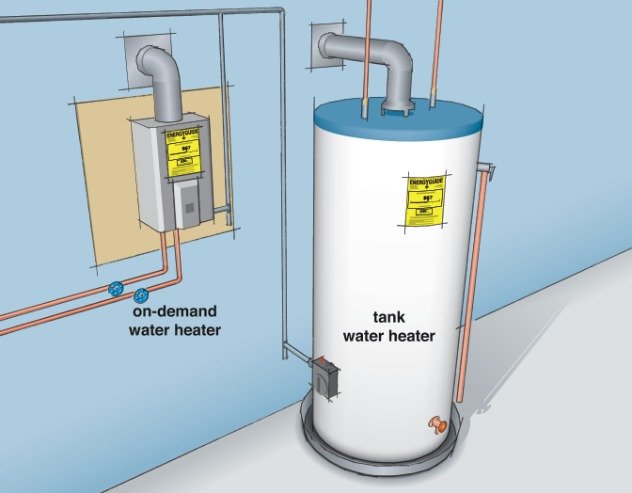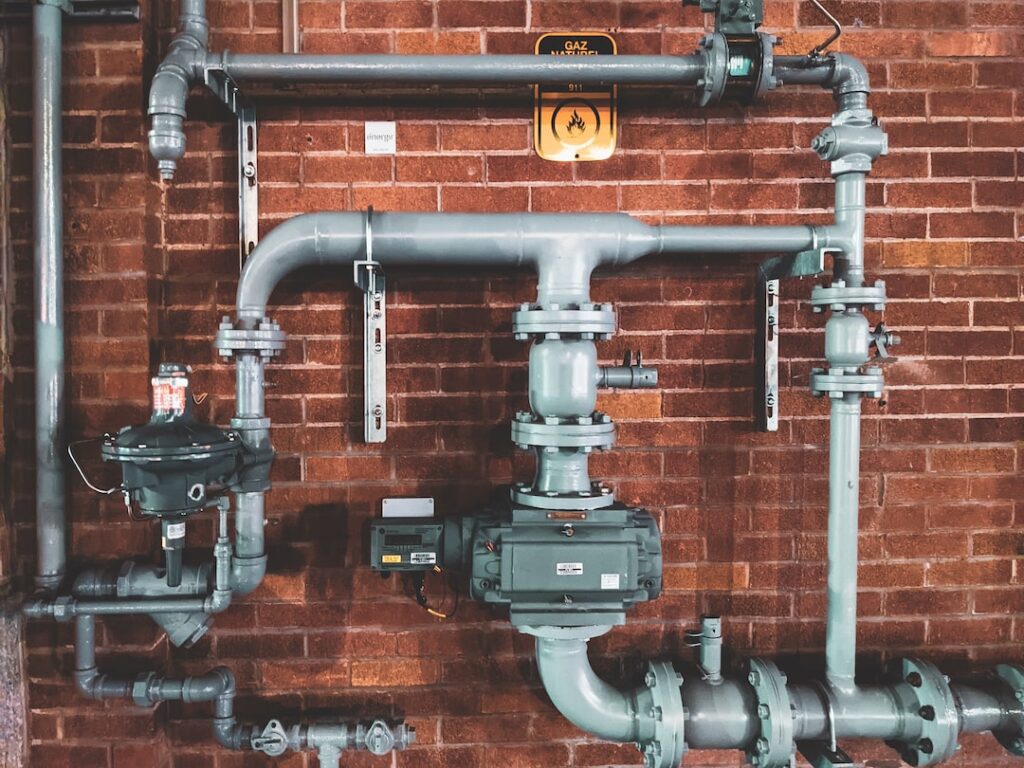One of the biggest factors in your energy bill is your commercial water heater. Just think about all of the hot water your business consumes on a daily basis. So, how much energy does a water heater use?
A 50-gallon water heater consumes 4500 watts of electricity. Heating 30 to 40 gallons of water will consume 4500 watts as well, but a smaller 20-30 gallon unit will only use 1000-2000 Watts.
Let’s find out how much energy does a water heater use and how you can save money on your water heating expenses.
Table of Contents
How Much Energy Does a Water Heater Use?
Water heating is the second biggest item on your monthly bill, next to electricity. It’s also one of the systems with the potential to waste a lot of energy and money if it isn’t used efficiently.
Here are some tips on how you can make sure your water heater is as efficient as possible.
First, set your water heater to the right temperature. The U.S. Department of Energy recommends 120 degrees Fahrenheit as the ideal temperature.
If you have a gas water heater, you can save even more money by turning down the temperature to the low setting.
If you have an electric water heater, you can also save money by turning off the “vacation” or “hold” setting when you’re not using it. This setting keeps the water in the tank warm even when your business is closed, which wastes energy.
Finally, if your water heater is more than 10 years old, it’s probably time to replace it with a more efficient model. Newer models are much more energy efficient than older ones, so you’ll see a big difference in your energy bill.
The Cost of Running a Water Heater
Whether you are managing a restaurant, laundromat, or apartment, water heaters are a vital part of any business. They provide warmth and comfort for your customers, employees, and tenants.
But all that heat comes at a cost.
Let’s take a look at how much energy does a water heater use and how that affects your budget.
Different types of water heaters use different amounts of energy.
According to Energy.gov, a standard 40-gallon electric water heater uses about $400 worth of electricity per year, while a gas water heater uses about $300 worth of natural gas per year.
Tankless water heaters are the most energy-efficient option, using about $250 worth of electricity or $200 worth of natural gas per year.
Of course, the cost of running a water heater varies depending on the price of energy in your area.
In general, however, you can expect to spend about $100-$150 per year on electricity, or $50-$100 per year on natural gas, to run your water heater.

(Source)
Types of Water Heaters
Hot water is used for many purposes, such as for manufacturing, cleaning, and sanitary reasons, and for the health and safety of clients. Thus, choosing a water heater that you can rely on is important.
Business owners have several options when it comes to water heaters. Different types of heaters may be ideal based on your business needs and preferences.
Water heating accounts for a large percentage of a building’s budget. Electrical elements and fuels are typically used to heat the water.
There are a few different types of water heaters to choose from.
Tank Storage
The storage tank style of heater heats water in the tank and keeps it there. This is the most common type of commercial water heater. Although it’s a reliable way to heat water, the supply is finite.
Storing water in a tank for a prolonged period of time also means that it will inevitably cool down and require reheating before use. To combat this, the tank is often insulated so that less heat loss occurs.
Tankless
As the name suggests, the tankless water heater does not store water in a storage tank. Instead, it produces instant, on-demand, heated water for its users.
A tankless water heater heats the water on demand, so there is no energy loss from heating a tank full of water and keeping it there.
Tankless water heaters are also capable of constantly producing a steady stream of warm water, and you don’t have to worry about running out of water, or the tank running dry.
Hybrid
The third and final style is a hybrid water heater, which uses electricity to heat the water as it’s needed.
These hybrid hot water heaters are able to store a little bit of preheated water in a tank, which allows them to produce warm water quickly when the faucet is turned on. These systems are a hybrid of tank storage and tankless water heaters.
If you’re not sure which type of water heater is right for your building, contact a professional to help you make the best decision.
Types of Water Heater Fuel
Your water heater needs the energy to power the heating elements that heat up your water. There are three main types of water heaters.
- Electric: These water heaters use electricity to power up the heating element inside the tank. They are common in American commercial buildings.
- Gas: Gas water heaters are a relatively inexpensive and efficient way to heat water. A consistent source of natural gas is easily available from your local utility provider.
- Oil: Like gas-powered heaters, the oil-fired variety is fueled by stored fuel. This type of heater can be very efficient, but if it runs out of oil, it won’t function again until more is purchased.
Conclusion
When choosing a new hot water heater, it’s important to make sure you select one that’s the right size for your business. Your HVAC specialist can help determine what size you’ll need based on the size of your building and the amount of water your tenants or employees consume.
Generally, your water heater should be capable of producing more gallons of heated water than is needed during the busiest times of the day.
You can save on your monthly gas or electric bills by opting for high-efficiency water heaters that carry an Energy Star certification. These units can usually save you 25% or more over the cost of operating non-Energy Star heaters.
If you’re looking to save on your water heating costs, finding out how much energy does a water heater use can help you choose the right model for your business. Contact us today to learn more about our services and how we can help you save money on your water heating costs.





